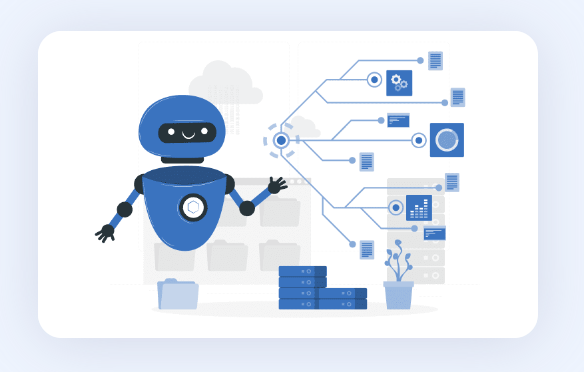In the modern landscape of digital interaction, businesses are constantly seeking innovative solutions to enhance customer engagement and streamline processes. One such solution that has gained significant traction is chatbot software development. Chatbots, powered by artificial intelligence (AI) and natural language processing (NLP), have revolutionized the way businesses communicate with their audience, automate tasks, and provide round-the-clock support.
Understanding Chatbot Software Development
What are Chatbots?
Chatbots are AI-driven programs designed to simulate human conversation through text or voice interactions. These virtual assistants can interpret user queries, provide relevant responses, and perform tasks autonomously.
The Evolution of Chatbot Technology
Over the years, chatbot technology has evolved significantly, moving from rule-based systems to more sophisticated AI-powered models. Modern chatbots leverage machine learning algorithms to continuously improve their understanding and responsiveness, delivering a more personalized user experience.
Benefits of Chatbot Software Development
Enhanced Customer Engagement
Chatbots enable businesses to engage with customers in real-time, addressing inquiries promptly and offering personalized recommendations. This leads to higher customer satisfaction and increased retention rates.
24/7 Support
Unlike human agents, chatbots are available round-the-clock, providing instant assistance to users regardless of time zones or geographical locations. This ensures uninterrupted support and improves overall customer experience.
Automation of Routine Tasks
Chatbots can automate repetitive tasks such as answering FAQs, scheduling appointments, or processing orders. By offloading these tasks to chatbots, businesses can streamline operations and allocate resources more efficiently.
Data-driven Insights
Through analytics and reporting features, chatbots gather valuable insights into customer preferences, behavior patterns, and frequently asked questions. This data can be leveraged to optimize marketing strategies, improve products/services, and drive business growth.
Key Considerations in Chatbot Software Development
Define Objectives and Use Cases
Before embarking on chatbot development, it's essential to clearly define the objectives and use cases. Whether it's lead generation, customer support, or sales assistance, aligning the chatbot's functionality with business goals is crucial for success.
Choose the Right Platform and Technology
Selecting the appropriate platform and technology stack is paramount in chatbot development. Consider factors such as scalability, integration capabilities, and natural language processing capabilities to ensure the chosen solution meets business requirements.
Design User-friendly Conversational Flows
The user experience (UX) plays a pivotal role in the effectiveness of a chatbot. Design intuitive conversational flows with clear prompts, natural language understanding, and contextual awareness to ensure seamless interactions with users.
Implement Security and Compliance Measures
Security and privacy are paramount when developing chatbots, especially in industries handling sensitive data such as healthcare or finance. Implement robust security protocols, encryption mechanisms, and compliance standards to safeguard user information.
Future Trends in Chatbot Software Development
Integration with Voice Assistants
As voice technology continues to gain prominence, chatbots will increasingly integrate with voice assistants such as Amazon Alexa or Google Assistant, enabling hands-free interactions and expanding reach across devices.
AI-driven Personalization
Advancements in AI algorithms will enable chatbots to deliver hyper-personalized experiences based on user preferences, past interactions, and behavioral data. This level of customization will foster deeper engagement and loyalty among users.
Multi-channel Support
Chatbots will extend beyond traditional text-based channels to support multimedia interactions across various platforms such as social media, messaging apps, and even augmented reality (AR) interfaces, catering to diverse user preferences.
Emotional Intelligence
Future chatbots will possess emotional intelligence capabilities, allowing them to recognize and respond to user emotions effectively. This empathetic interaction will humanize the chatbot experience, fostering stronger connections with users.
In conclusion, chatbot software development presents a myriad of opportunities for businesses to enhance customer engagement, automate tasks, and gain valuable insights. By understanding the fundamentals, leveraging cutting-edge technology, and embracing emerging trends, businesses can harness the full potential of chatbots to stay ahead in today's digital landscape.






